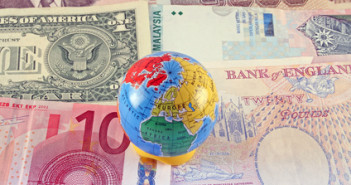Guest post by Alfonso Esparza, Senior Currency Strategist at Alfonso Esparza
What dates and events will have most impact on the currency markets in 2013?
Certain economic indicators have risen in the ranks as they now dictate more than the underlying figures they represent. The United States has started to strengthen its economic recovery narrative. Every economic indicator will add to that story. The most important release will be the Non-Farm Payroll report that is disclosed the first Friday of every month. The Fed’s decision to target unemployment as the trigger to start tapering its 85 billion a month quantitative easing program makes the monthly NFP report a date to always keep in mind. The Bank of Japan has made inflation a goal of the Abe administration so every Consumer Price Index release this year will be watched with anticipation. Japan suffers from chronic deflation so any indication that Abe’s and BoJ Kuroda’s plan is bearing fruit will be well received by the markets.
What are the top three currencies to watch?
The biggest currencies by volume have not escaped the volatility of this year’s uncertainty. The USD, EUR and JPY will keep market observers digging for insight as the Fed, the ECB and the BoJ will be in the spotlight. Their stance has been criticized by the Bank of International Settlements, which has warned about this bold approach to monetary policy.
What three key macroeconomic themes will dominate the news agenda in 2013?
- · Central Bank Intervention and its positive/negative consequences
- · Social and political unrest as more people shy away from austerity around the world.
- · Safe haven investments wanted. With so much uncertainty there is no clear quality investment to seek shelter from the economic storm.
What will be the impact of Carney’s arrival on the UK economy?
Mark Carney will join as head of the Bank of England on Canada day. The expectation surrounding his unusual appointment and his achievements while at the Bank of Canada will start to be marked to market on 1st July. It will be interesting to watch a Central banker who was handed a healthy economy and had to endure a financial crisis in the United States’ credit markets versus a central banker explicitly appointed to get the United Kingdom out of a recession. His boldness will be rewarded in the short term and depending on how he doses his remarks he might win more converts than enemies. There is a limited arsenal at Carney’s disposal so he will have to rely on himself in the first leg of his governorship. If he can win back policy member consensus around the stimulus programmes and other novel ideas he could gather short and midterm results that are much needed in the UK.
Will the German economy pick up in 2013?
Germany has been the strongest economy in the Eurozone. While that might not be telling much given the EU is currently in the middle of a dire economic crisis. Germany has a very strong labour market and after the elections later this year it will also have political stability. Angela Merkel comes into the elections in a position of strength and will leverage the work she has done for Germany during the crisis as the best example of her legacy. The fact that the crisis is still on-going speaks to her attributes and all surveys and analysis point to her party retaining the leadership of Germany. The forecast is not as optimistic on the rest of Europe. Financial, social and political instability continue to grow in Greece, Spain, Italy and France in particular. Germany is more than the best of a bad lot, but there are some contagion fears that could derail the pace of recovery of the nation.
What is the future of Abenomics?
The market was initially confident on PM Abe and the Bank of Japan bold rhetoric at the beginning of the year. A disappointing policy meeting with no changes sapped all the goodwill that Kuroda and Abe had enjoyed. Now the fate of Abenomics rests within the economic indicator Abe is so focused on. Inflation. His three arrows have lost some sharpness and he needs to tweak the strategy going forward. The three arrows are: Monetary policy, government spending and structural reforms.
Will a TPP agreement be reached?
Given the low profile that the Trans Pacific Pact has enjoyed great progress has been made. The difficult part is yet to start where local governments get to vote and discuss about the benefits and challenges of such a large and ambitious trade agreement programme. There are protests expected that could change how the public and elected politicians view the pact. This year will not be a make or break one for the pact, but it will be telling of how it can fare going into next year as more people are aware of its significance.
Is further gold volatility expected? What can be expected for the commodities market?
The lack of a safe haven asset class will lead to an increase in volatility as the previously thought safe assets are now dropped without hesitation. Gold has reduced the correlation with the stock market and this year it has a negative correlation which speaks of the decoupling of stocks and commodities. Physical demand for precious metals has dropped. The slowdown in China, the on-again off-again US recovery and the European financial crisis have strengthened the USD versus commodities in general as more people sell them to convert to cash seeking shelter from the financial storm as inflation is not a concern.
